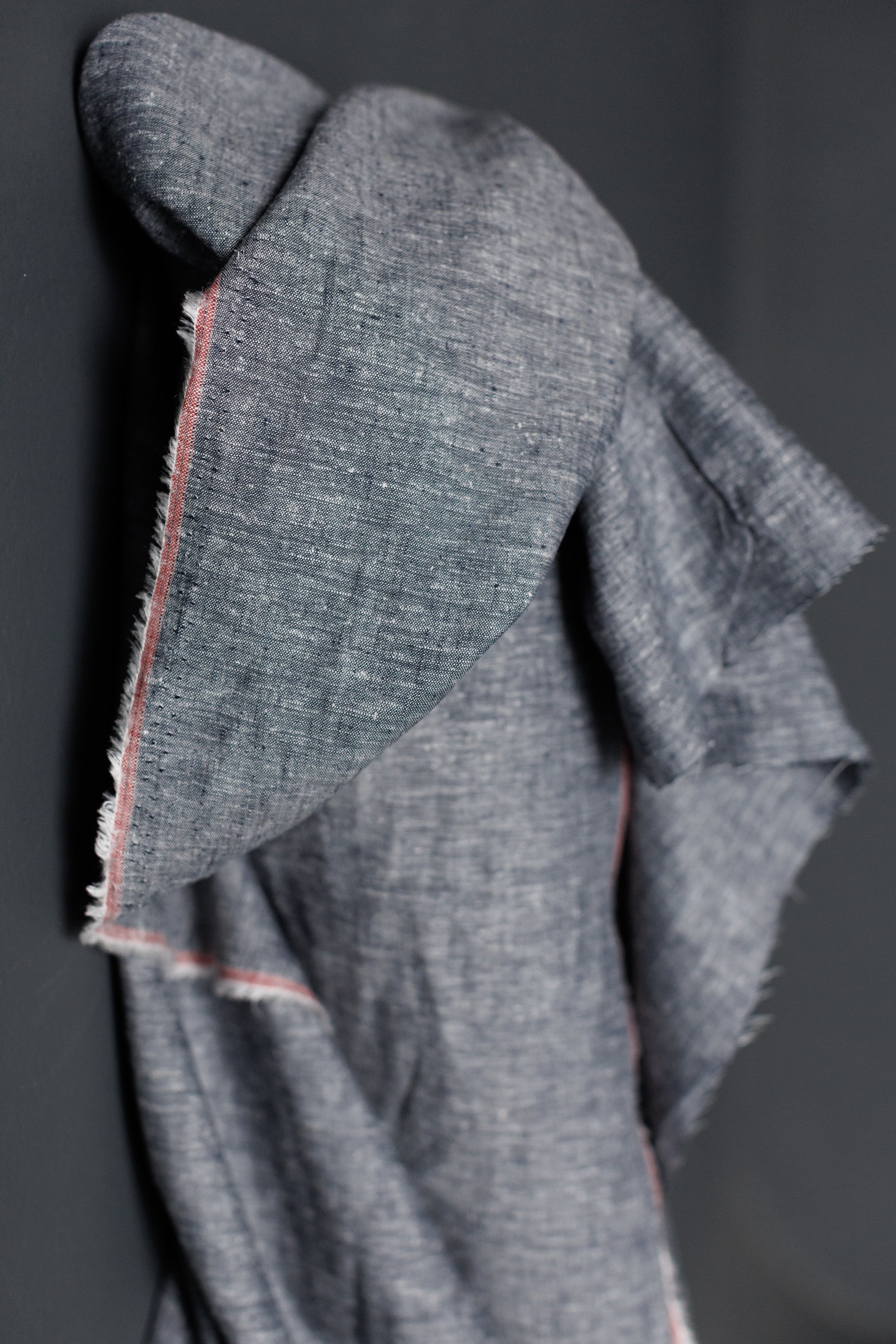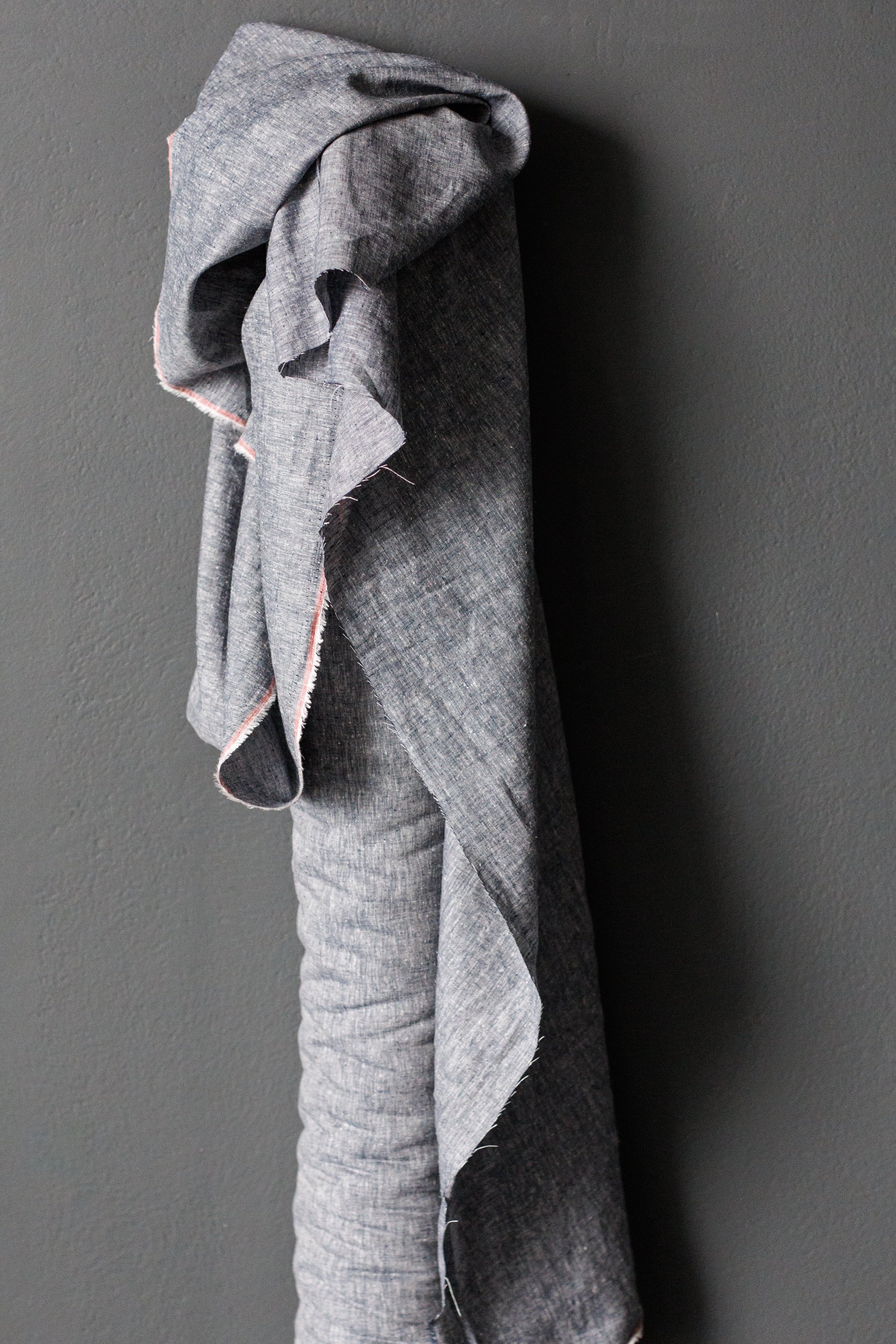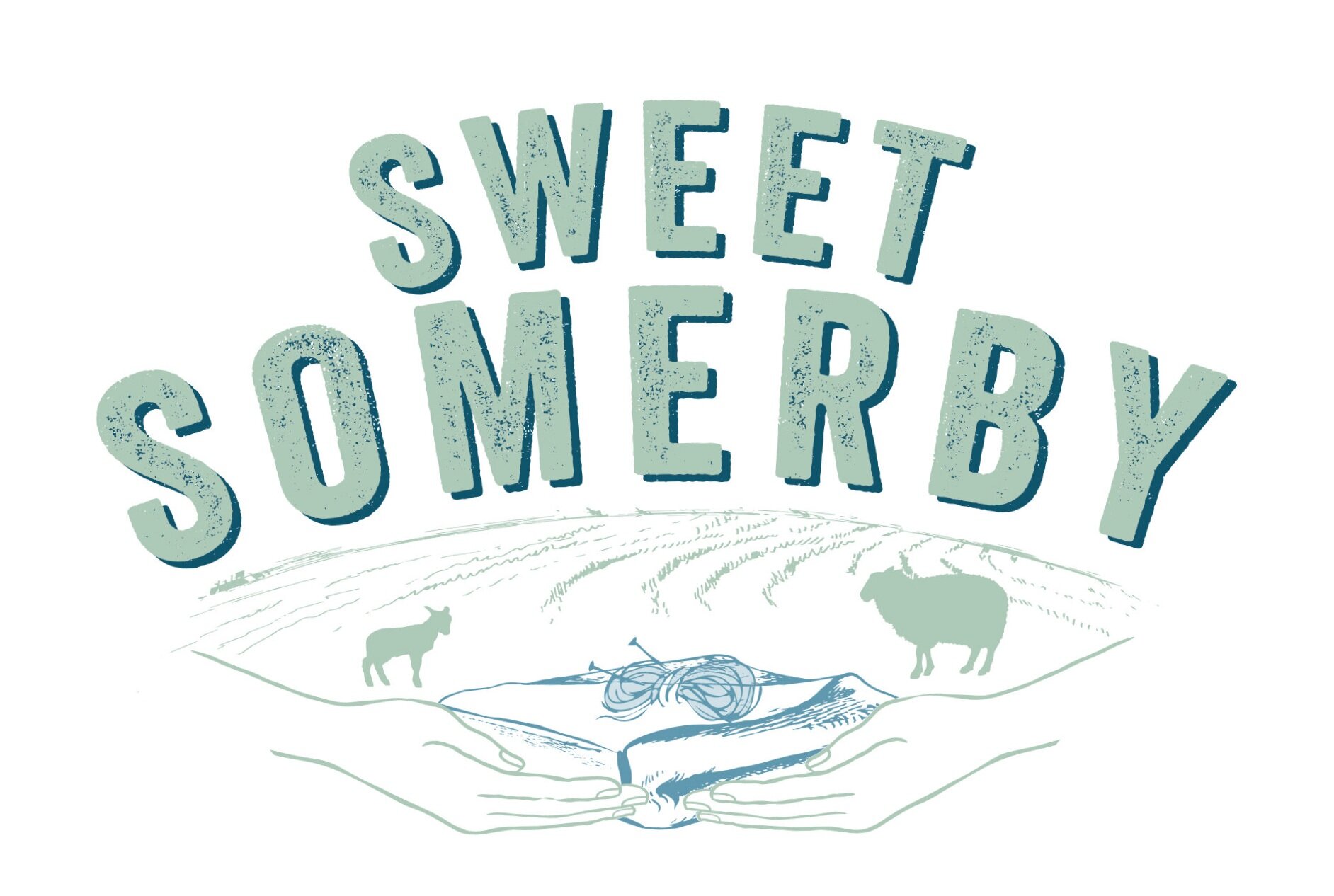Yarn Dyed Hemp/Tencel


Yarn Dyed Hemp/Tencel
A light-weight mid blue chambray in a blend of hemp and tencel. It would make a beautiful summer shirt. You could use this for many patterns, tops, dresses, light-weight trousers and shirts.
148cm wide.
3.3oz/113gsm.
55% hemp, 45% tencel.
Wash at 30 degrees, with a non bio detergent and on a gentle spin cycle.
Iron on low, do not bleach.
Tumble dry on a low heat.
More about Hemp:
Hemp and marijuana are both the same species of plant separated only by selective breeding. Hemp is extremely durable, up to three times stronger than cotton. It’s soft to touch, and can hold its shape well. Hemp is naturally breathable and highly water absorbent.
It is hypo-allergenic, UV resistant, anti-fungal and thermoregulating.
Eco credentials:
Hemp behaves and looks much like linen. It is also grown and processed in a similar way, yet it can yield twice as much fiber as flax. It has a short growing period of about 100 days and so can be planted and harvested up to four times a year. The cultivation process naturally reduces pests and returns 60-70% of the nutrients it takes into the soil. It requires little water or pesticides and no fertilizers. It is the most carbon negative crop, absorbing more carbon dioxide than it produces.
More about Tencel:
Tencel is a cellulose fibre, which like rayon is made by dissolving wood pulp. It is durable, resistant to wrinkles and has the silkiest drape to handle.
It has excellent natural breathability with 50% greater moisture absorption than cotton. Making it a good choice for those with sensitive skin. It is also anti- bacterial and thermoregulating.
Eco credentials:
The process of Tencel production ameliorates much of its own environmental effects. Like cotton, Tencel is made from plant materials. However, manufacturing Tencel requires less energy and water than cotton. The solvents used to turn the wood pulp into fibre are contained in a closed loop system, with a quoted recovery rate of 99%. As a naturally derived fibre, Tencel is also biodegradable.
Although it is dyed conventionally (which can be harmful to the environment), Tencel requires a lot less dye than cotton. The manufacturers are actively striving towards greener, cleaner and more efficient production and are currently investing in new, renewable energy sources.
Pricing: All fabrics are priced per 1/2 yard. Fat 1/4 yards are available upon request via email.
